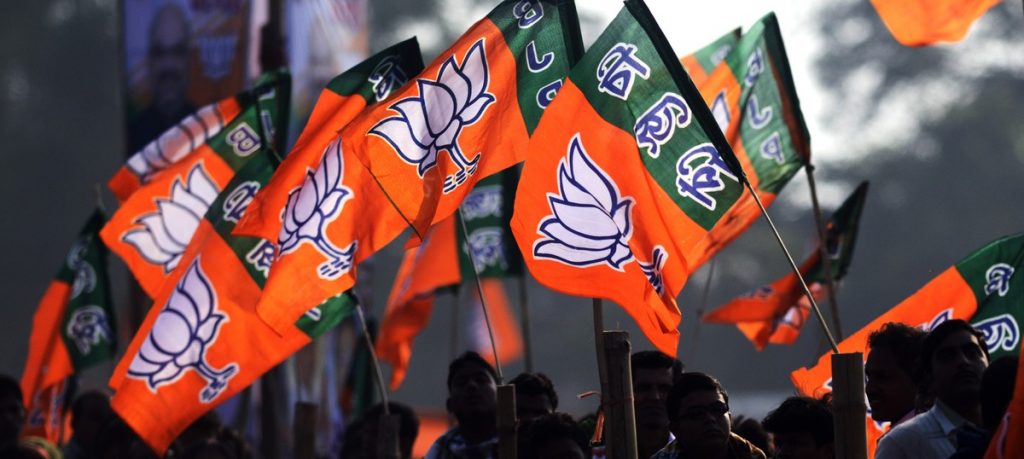BJP is panicking and everybody can see it.
The significance of elections in India’s politically biggest and most important state can’t be emphasized enough. And rightly so. It holds the key to power in New Delhi and would be a microcosm of the next General Elections. The stakes for various political parties is indeed very high and therefore when they sense they might lose it, then it becomes a no holds barred effort.
It is against this context that Modi’sKabristan-Shamshan remark needs to be seen against. The timing is of utmost importance and the statement itself has as much to do with the dislike of the Muslim community as with political opportunism.Such statements usually come midway during staggered elections in big states. Why?Let’s first see what he said.
Prime Minister NarendraModi said during a speech at Fatehpur, Uttar Pradesh: “Ramzan me bijli aati hai to Diwali me bhi aani chahiye; Bhed bhav nahi hona chahiye (When electricity is available on Ramzan, then so should its supply be ensured during Diwali. There shouldn’t be any discrimination.” PM Modi also added: “If there is a Kabaristaan, there should be Shamshaan too”.
Why did he say it?
Anyone with half a brain can see that the statement betrays BJP’s nervousness at the outcome of Uttar Pradesh polls, but why did he say when he did. The timing is crucial. One of the primary reasons for why the statement was made then has a lot to do with how elections are conducted in India.
In large states polling takes place over several phases, largely due to the logistics involved. For example, during the Assembly elections of UP this time around, the polling is being conducted in seven phases beginning from February 11, the first phase to March 8, the last phase and seventh phase, a mind-boggling spread of little less than a month. The fourth phase is on.
Exit polls have been conducted but their results are have been packed away as the law doesn’t allow them to be made public, that is, telecast or released till the polling is over.
However, there is no way to ensure that the results of the exit polls don’t reach political parties. And when they come to know that they are losing such an important election then all hell breaks loose.
For instance, in the house of 403 members, 262 Assembly constituencies have gone or are going to polls, including the ongoing phase IV. If the BJP gets information that it is not winning in the seats that have already gone to polls till now and that its development agenda has not worked with the voters, what will it do? If its ears on the ground tell it that it has performed poorly in 262 seats then there are two conclusions:
(1) To perform well it will have to do exceedingly well in the remaining seats; (2) It also knows that its development plank is not working. Putting two and two together, it ups the ante.
This can be done only through two ways:
(1) The BJP can go back to its original agenda and polarize people on communal lines
(2) It can try something new
Unfortunately, time and again the BJP has ended up exercising the tried and tested route. Let’s take another example.
During Bihar elections, the BJP and president Amit Shah, both were aware of an impending defeat and thus came out the communal card. He said: “Agar galti se bhi BJP ye chunav har gayi, galti se bhi, jay parajay toh isi dhartipehogi, lekin patakechalenge Pakistan mein (if the BJP loses this election by mistake, even by mistake, victory or defeat will unfold here, but fireworks will go off in Pakistan). The remark was made during Bihar Assembly Elections in 2015 by Shah, the BJP president, during an election meeting at Raxaul in East Champaran, 210 km from Patna. In other words: Vote for BJP so that Pakistan does not get to celebrate Diwali.
However, something like this doesn’t happen in small states, for example Punjab and Goa. Elections are held there in a day, so there is no chance of any gear shifting.
This gear shifting is clear evidence that the BJP feels that it is on the losing side. It has consequently gone for the jugular. However, would the tried and tested route work for the BJP? We will get to know that on March 11.
Disclaimer: The opinions expressed in this article are the personal opinions of the author. The facts and opinions appearing in the article do not reflect the views of NEWSD and NEWSD does not assume any responsibility or liability for the same.


















